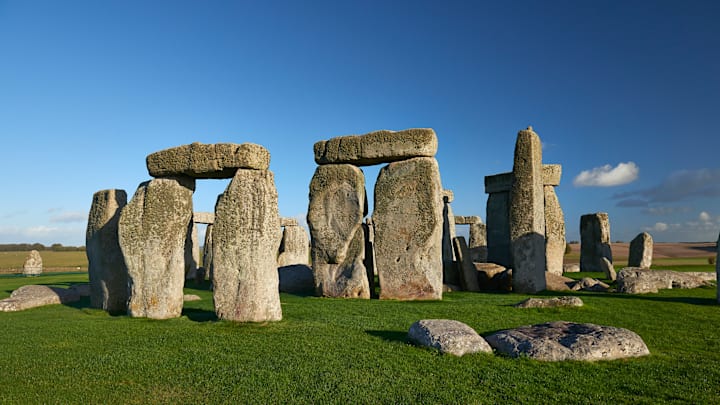No other assembly of oversized rocks has attracted as much curiosity as Stonehenge, the cryptic monument in Wiltshire, England, that dates back to 3000 BCE. The motives of how and why it was erected remain a mystery. What we do know is that a man in the 20th century once had legal ownership of it, and he obtained it via a public auction.
His name was Cecil Chubb, and in 1915, he attended an auction in Salisbury offering the country’s most intriguing art installation. At the time, Stonehenge had been in the hands of private owners—the Antrobus family. (The site was under private control dating back to the reign of King Henry VIII.) They charged admission to the fenced-in site, which had previously been subject to vandalism. But when their last living heir died, Stonehenge and 30 adjoining acres was put up for sale to settle the estate.
Chubb, who had trained as a solicitor and had considerable financial means, had gone to the auction without knowing about the sale. When he realized Stonehenge was on the block, he seized the opportunity, bidding 6600 pounds, which would be roughly $205,000 today. Some believed he intended to offer it as a gift to his wife, Mary— though he may also have been motivated in part to buy it after rumors swirled that an American investor could swoop in and dismantle it for relocation to the States. Chubb, however, told curious reporters that it made for a wise investment. He said he planned to continue to charge admission before eventually reselling it.
Perhaps maintaining Stonehenge as an attraction wasn’t all it was cracked up to be. In 1918, Chubb decided Stonehenge was best left to the oversight of UK government and gave it to the country, with both he and wife Mary signing the deed over. He insisted the admission fee to visit the site should never be more than 1 shilling and that locals should never have to pay. Of course, inflation matters. Today, adult tickets to the attraction are 22 pounds ($24).
Chubb was recognized for his generosity. In return for gifting Stonehenge, he received knighthood and was subsequently nicknamed Viscount Stonehenge. He died in 1934.
As for his wife, Mary: She was said to be unimpressed with his extravagant gesture, possibly because Chubb reportedly used part of her family fortune to make the purchase.
A version of this story was posted on October 10; it was updated October 11 to reflect Mary Chubb's financial status and her role in acquiring Stonehenge.
